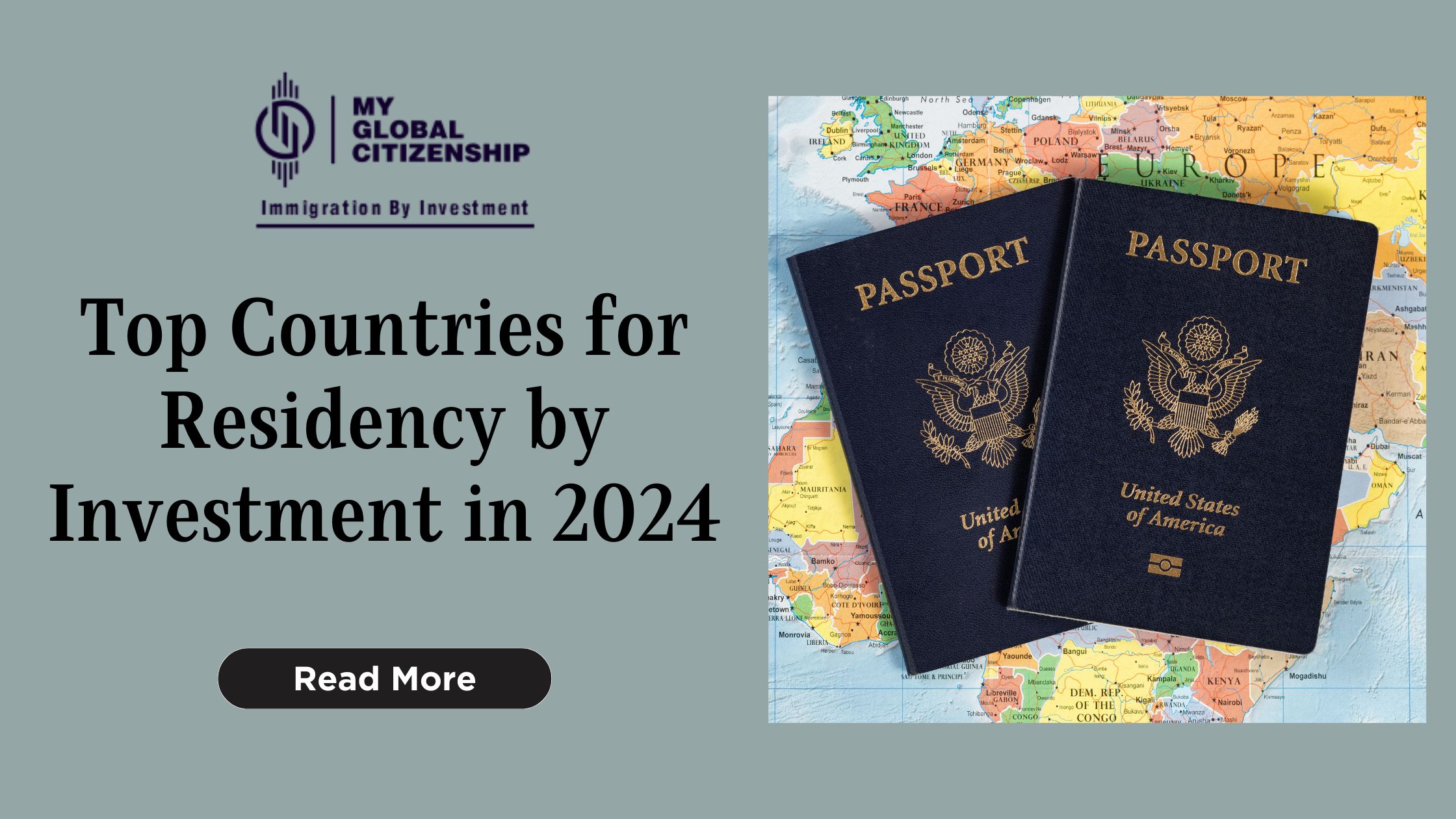The Citizenship by Investment Program provides a pathway for people and families to acquire second citizenship through investment and is one of the most sought-after ways. Although these programs have alluring benefits, it is important to weigh the benefits and any potential downsides before choosing one. Let’s examine the advantages and disadvantages of citizenship by investment programs and provide a thorough analysis to aid in your decision-making.

Source: Citizenship By Investment
Based on the Henley Passport Index, which ranks countries based on the number of visa-free or visa-on-arrival destinations for their passport holders, we can see that Malta, Cyprus, Grenada, Antigua & Barbuda, St. Kitts & Nevis, Dominica, St Lucia have relatively high points for their travel convenience as most of these countries provide their citizens visa-on-arrival or visa-free access to a large number of different foreign countries.
Pros of Citizenship by Investment Programs
1. Global Mobility and Visa-Free Travel
One of the most significant advantages of CIPs is the enhanced global mobility they offer. Successful applicants gain the freedom to travel visa-free or with visa-on-arrival access to numerous countries. People who frequently travel for professional, leisure, or personal reasons will find this to be especially useful. One’s professional and personal lives can be substantially enhanced by the ease of hassle-free foreign travel. For instance, visa-free access to different countries through the Malta Citizenship by Investment Program is available to more than 182 countries; Antigua & Barbuda Citizenship by Investment offers access to 160 countries; and St. Kitts and Nevis Citizenship by Investment offers access to 157 countries.
2. Access to a New Market and Business Opportunities
Investing in a foreign country through a CIP provides a gateway to new markets and business opportunities. It allows investors to tap into emerging industries, expand their business networks, and explore untapped potential. This can be especially beneficial for entrepreneurs and investors seeking growth and diversification.
3. Wealth Preservation and Tax Optimization
Some CIPs offer favourable tax regimes that can provide significant tax benefits and opportunities for wealth preservation. By obtaining citizenship in a country with advantageous tax policies, investors can optimize their tax liabilities and protect their assets. Malta Citizenship by Investment Program, Antigua & Barbuda Citizenship by Investment Program, and St. Kitts and Nevis Citizenship by Investment Program are among the most sought-after programs for their favourable tax regulations.
4. Lifestyle Upgrade
Citizenship through investment often opens doors to a better quality of life by offering access to quality education, healthcare, and social benefits. It allows investors and their families to experience life with access to amenities and services that may not be available in their home country. It is statistically proven that most citizens of countries like Malta, Antigua & Barbuda, and St. Kitts and Nevis have a better quality of life, which can be obtained through the Malta Citizenship by Investment Program, Antigua & Barbuda Citizenship by Investment, and St. Kitts and Nevis Citizenship by Investment, respectively.
5. Secure Future and Citizenship for Generations
Obtaining second citizenship through a CIP can provide long-term security for investors and their families. It ensures that future generations have access to the advantages, opportunities, and stability offered by citizenship. This can be especially valuable for families seeking a secure future and a Plan B in an increasingly uncertain world.
Cons of Citizenship by Investment Programs
1. High Financial Requirements
The investment amounts required for citizenship would range from hundreds of thousands to millions of dollars based on the program and country of the applicant, which could substantially pose a barrier to entry for investors with constraints in their financial resources. The EU countries are more expensive compared to Caribbean countries, where prices start at $100K. There would also be additional fees of around 30–40%, which applicants are not aware of.

Source: Vivid Maps
2. Substantial Evidence as proof of previous expertise
There are several countries that require investors to have previous experience in successful entrepreneurial projects or commercial ventures. Moreover, some countries would also focus on the investor actively having a role in the company they set up in the new country. Some applications would require the source of investment funds.
3. Economic Impact
A person’s current citizenship may need to be renounced in order to get citizenship by investment, which could result in the loss of social, economic, cultural, and political ties to the nation of origin. These programs can also have a big impact on the economy of the host nation by luring in foreign investment, which can have both beneficial effects like increased economic growth, the creation of jobs, and infrastructure development, as well as negative effects like wealth inequality and economic reliance.
4. Long Application Processes
The application process for CIPs can be lengthy and complex, involving extensive documentation, background checks, and interviews. It requires patience, attention to detail, and the ability to navigate bureaucratic procedures.
5. Cultural and Social Adaptation
Moving to a new country and obtaining citizenship through investment often entails cultural and social adaptation. It could entail picking up a new language, becoming familiar with regional traditions, and integrating into a new community. For people with strong emotional bonds to their home country, it could become an obstacle.
Global mobility, economic prospects, tax advantages, and a higher standard of living are just a few perks that citizenship by investment programs has to offer. However, it is crucial to take into account any potential disadvantages, such as significant financial requirements, moral dilemmas, rigorous procedures, and cultural adaptability. Before starting the journey, people should carefully consider the benefits and drawbacks, do extensive research, and seek professional advice to ensure a well-informed choice in line with their financial and personal objectives.
If you still have any queries, connect with our team, and we will be more than happy to assist.






